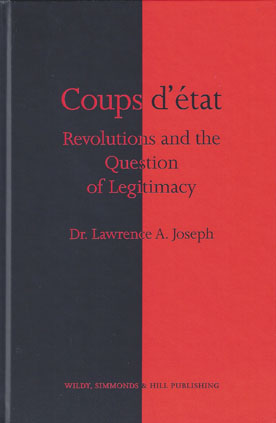
This book sets out to test the hypothesis that the fundamental concept which determines the validity and competence of usurper regimes in common law jurisdictions is the concept of legitimacy as was clearly elucidated in the Grenada Case of Mitchell v DPP (1986).
A comparative analysis of this case in juxtaposition with sixteen other extra-constitutional common law cases comprised the main scope of the study. Consequently, an exhaustive survey of these cases beginning with the Dosso case in Pakistan in 1958 and ending with the Qarase case in Fiji in 2009 was conducted.
The analysis reveals that the appropriateness of utilizing any of the judicially recognized doctrinal concepts of strict constitutionalism, state necessity, Kelsen’s theory of revolutionary legality and the doctrine of successful revolution depends,inter alia, on whether there was continuity or discontinuity of the legal order of the state.
These doctrinal concepts have their own implications for the concept of legitimacy following the occurrence of a coup d’etat or a revolution. Legitimacy itself has important implications for resolving various extra-constitutional issues which inevitably arise.